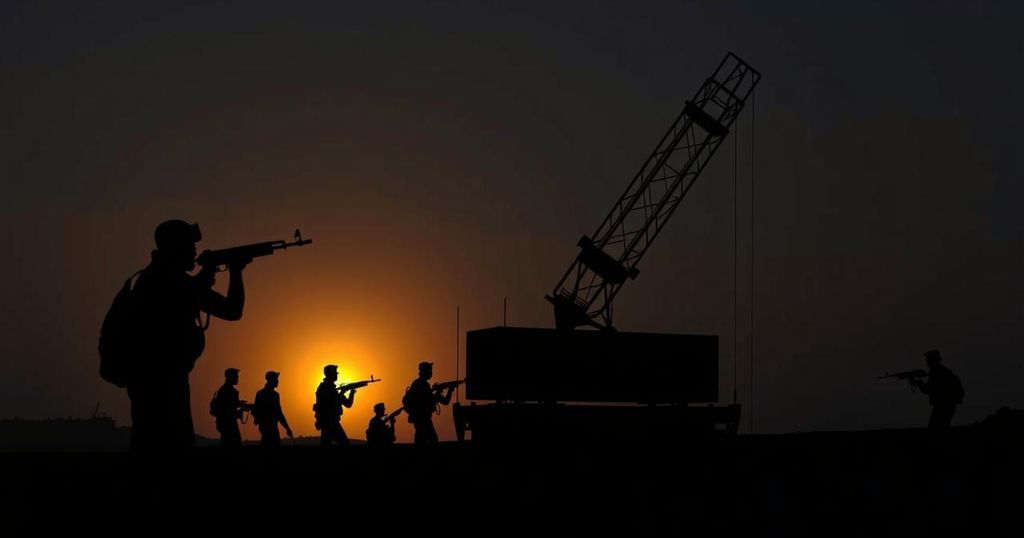Fresh Arms Shipment from Egypt to Somalia Escalates Tensions with Ethiopia
Egypt’s second arms shipment to Somalia has raised alarms in Ethiopia, intensifying existing tensions related to the GERD conflict and new agreements between Ethiopia and Somaliland. The developments spotlight the fragility of the Horn of Africa, where military support and potential arms races threaten regional stability amid historical territorial disputes and humanitarian crises.
In a move that heightens regional tensions, Egypt has dispatched a second shipment of arms to the Somali federal government within a single month. The Egyptian foreign ministry has justified the shipment, citing the need to enhance the capabilities of the Somali army to ensure security, stability, and the integrity of its national sovereignty. The development has drawn concerns particularly from Ethiopia, which views these external military support efforts as a potential escalation of an already precarious security landscape in the Horn of Africa and fears that such arms may be misappropriated by terrorist factions. The historical backdrop to this situation is marked by a long-standing dispute between Egypt and Ethiopia regarding the construction of the Grand Ethiopian Renaissance Dam (GERD) on the Blue Nile River, a crucial water source for Egypt, supplying approximately 95% of its fresh water. Simultaneously, Somalia has been embroiled in grievances with Ethiopia over a newly minted agreement involving the breakaway region of Somaliland, which includes leasing coastal access to Ethiopia, a development Somalian officials have labeled as an annexation attempt of their territory. Harry Verhoeven, an expert on infrastructure and energy in the Horn of Africa, elaborates on the risks associated with this geopolitical strain, insisting that such posturing is precarious and could spiral out of control in a region fraught with multiple conflicts. The existing humanitarian crisis exacerbated by conflict and extreme weather has left over 20 million people internally displaced across East Africa, adding further urgency to the diplomatic tensions. In an escalating response, Somaliland officials have warned that the recent arms deliveries to Somalia may instigate an arms race, which could severely threaten regional security. Tensions escalated further when Ethiopian intelligence chief Redwan Hussien confirmed fears harbored by Somali officials, asserting that Ethiopia is determined to secure its historical claim to maritime access, driven by a desire for not just commercial benefits but also intentional territorial ambitions in the Horn of Africa. Somalia has so far attempted to counteract the situation through diplomatic channels; however, it has shifted its stance towards a more combative approach in recent months. Somalia’s foreign minister Ahmed Moalim Fiqi indicated that the nation would contemplate supporting rebel factions against Ethiopia should the latter pursue its controversial coastal lease agreement with Somaliland. Furthermore, Egypt has strengthened its military ties with Somalia, participating in African Union peacekeeping missions aimed at battling the al-Shabaab group. These military engagements, however, have incited caution amongst Ethiopian officials, who have refrained from overtly mentioning Egypt but expressed concern regarding perceived destabilizing external engagements in the region. Ethiopia’s Prime Minister Abiy Ahmed regards both access to maritime routes and the management of the Nile as essential components of his country’s prospective economic growth and development agenda.
The Horn of Africa remains a volatile region, primarily characterized by historic disputes over territorial rights and natural resources. Central to the current tensions is the GERD, constructed by Ethiopia, which Egypt views as an existential threat to its water security due to its heavy reliance on the Blue Nile. Simultaneously, the relationship between Somalia and Ethiopia is strained due to Ethiopia’s recent engagement with Somaliland, a self-declared independent region. Somalia perceives Ethiopia’s infrastructure developments as attempts at expansionism, particularly as Ethiopia seeks to regain maritime access lost decades prior when Eritrea gained independence. This convergence of historical grievances has fueled complexities in regional diplomacy, urging external players like Egypt to declare their stances and engage militarily.
In conclusion, Egypt’s recent military support for Somalia arrives amidst heightened tensions with Ethiopia over water rights and territorial integrity. As the two nations navigate their conflicting interests, the potential for an arms race, regional destabilization, and escalated hostilities grows increasingly probable. The broader implications of these adversities underline the precariousness of peace in the Horn of Africa, necessitating on-going evaluations of diplomatic strategies and international mediation efforts to avert further conflict.
Original Source: www.theguardian.com








Post Comment